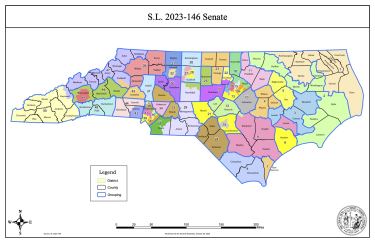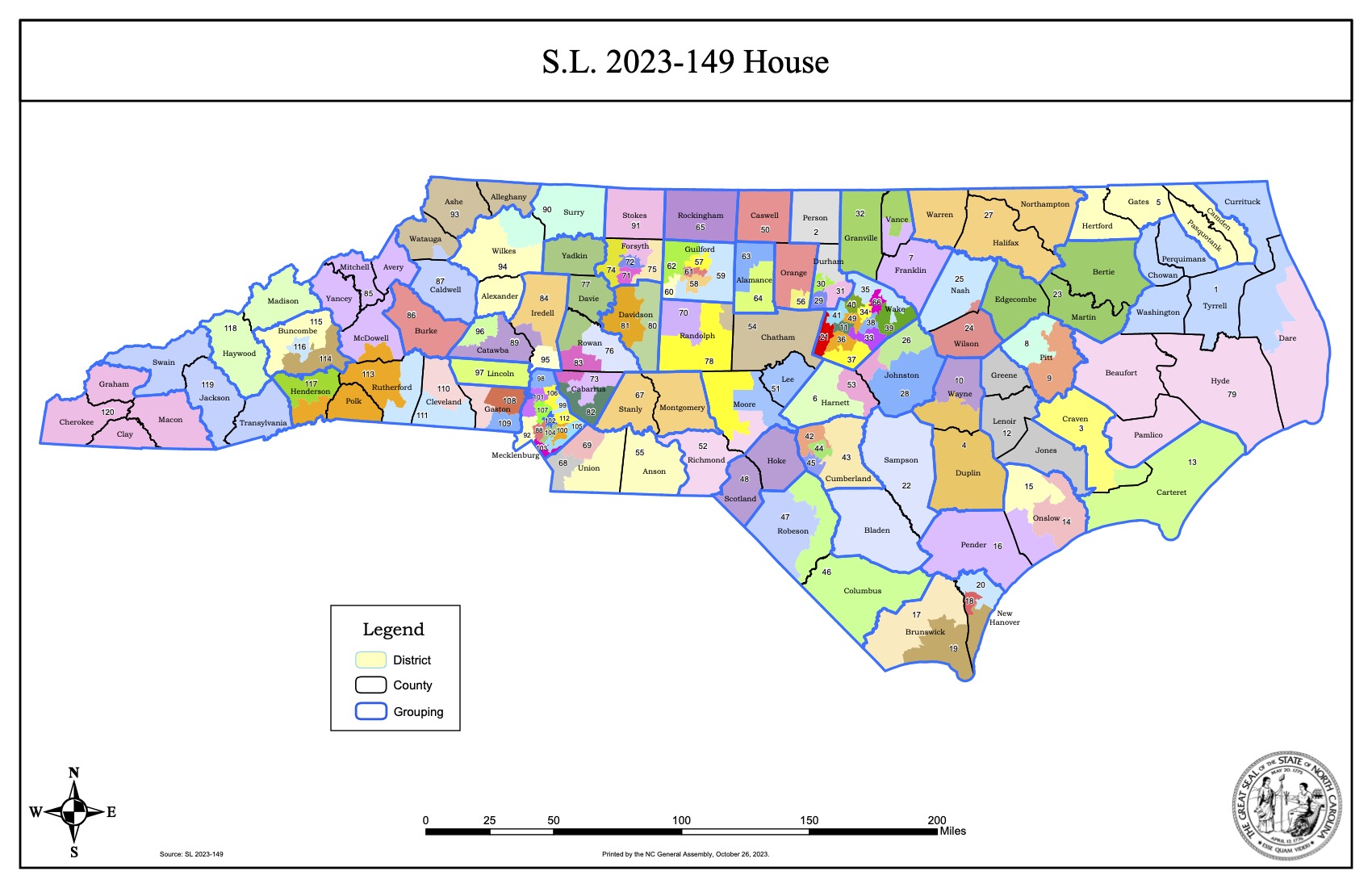
In Part 3 of NC Family’s 2024 Primary Election Report, we take a look at races for the State Senate and the State House of Representatives. The North Carolina General Assembly redrew state legislative districts in 2023, so this year’s elections are taking place using new district maps. Some districts changed dramatically, while others did not change much at all.
Overall, the North Carolina Senate is made up of 50 seats. According to an analysis of the partisan leaning of the State Senate districts by our friends at the John Locke Foundation: 19 are categorized as “Safe Republican,” four are “Likely Republican,” one is “Likely Democratic,” and 16 are “Safe Democratic.” The remaining 10 districts are split evenly between highly competitive “Toss-Up” seats and “Lean Republican” seats that favor electing a Republican but are not guaranteed to do so. This means that Republicans start out expecting to win at least 23 seats, while Democrats expect to win 17. The remaining 10 seats represent the truly competitive political landscape in the State Senate, and it is important to remember that either party has to capture 30 seats in order to hold a veto-proof supermajority in this chamber.
The March 5 Primary Election helped to narrow the field of candidates running for the State Senate. All in all, there were 10 contested Senate primaries – six on the Democratic side and four on the Republican side.
Incumbent Democratic Senators Dan Blue (Senate District 14) and Paul Lowe (Senate District 32) easily fended off primary challengers, while fellow incumbent Democrat Sen. Mike Woodard lost by 15 percentage points to primary challenger Sophia Chitlik in Durham County-based Senate District 22. Blue, Lowe, and Chitlik reside in “Safe Democratic” territory and are fully expected to win their General Elections in November. They will be joined by newcomer Caleb Theodros who won a four-way race in a winner-take-all Democratic primary in Senate District 41. Theodros faces no opposition in the fall.
In other Democratic Senate primaries, Donna Vanhook handily beat John Coleman in Senate District 25 and faces incumbent Republican Amy Galey in November in this “Likely Republican” seat. Ronda Mays also won a Democratic primary in Senate District 31 against Laurelyn Dossett and faces Republican Dana Caudill Jones in this “Safe Republican” open-seat district.
Former GOP State Rep. Michael Speciale lost a primary contest to fellow Republican challenger Bob Brinson in Senate District 3, and Brinson faces Democrat Charles Dudley in this “Likely Republican” open seat district in the fall. Another former Republican State House member, Mark Hollo, bested Nancy Meek in the Senate District 45 GOP primary and faces Democrat Kim Bost in this “Safe Republican” open-seat district in November.
Republicans also had primaries in two highly competitive “Toss-Up” seats. In Senate District 13, Scott Lassiter defeated Vicki Harry in the Republican primary and faces incumbent Democrat Lisa Grafstein in the fall. Also, in Senate District 42, Republican Stacie McGinn won a close primary race against Jaime Daniell and faces Democrat Bradley Woodson in the General Election in this open-seat race.

Overall, the North Carolina House is made up of 120 seats, and 72 seats are necessary to hold a veto-proof supermajority. According to an analysis of the partisan leaning of State House districts by the John Locke Foundation: 39 are categorized as “Safe Republican” and 13 are “Likely Republican,” meaning the GOP starts out being highly favored in 52 races. Five districts are “Likely Democratic” and 37 are “Safe Democratic,” meaning Democrats are expected to start out with a baseline of 42 seats. The remaining 26 districts are split between 17 “Lean Republican” seats, three highly competitive “Toss-Up” seats, and six “Lean Democratic” seats. These 26 districts are considered the truly competitive political landscape in the State House.
As in the Senate, the March 5 Primary Election helped to narrow the field of candidates running for the State House. All in all, there were 34 contested House primaries – 20 on the Republican side, 13 on the Democratic side, and one Libertarian contest.
Most notable on the Republican side is the apparent defeat of long-serving incumbent Republican Rep. George Cleveland in House District 14 by political newcomer and East Carolina University student Wyatt Gable by less than 100 votes. Incumbent GOP Rep. Kevin Crutchfield also appears to have been unseated by GOP challenger Brian Echevarria in House District 82 by a narrow margin. Both GOP victors face opposition in the General Election.
Also notable, is the reelection of incumbent Republican Rep. Reece Pyrtle to the State House, as he won the primary in House District 65 and faces no opposition in the fall. All the remaining GOP primary winners face opposition in the November General Election.
On the Democratic side, another long-serving incumbent, Rep. Michael Wray, is trailing primary challenger Rodney Pierce by 42 votes in House District 27. The winner of the primary here will be the de-facto Representative since there is no opposition in the General Election. Fellow Democratic incumbent Cecil Brockman holds a very slim lead of 83 votes over James Adams in the House District 60 primary.
Incumbent Democratic Reps. Amber Baker in House District 72 and Carla Cunningham in House District 106 won their primaries and face no General Election opposition. All other Democratic primary winners face opponents in the fall.
The 2024 General Election will take place on Tuesday, November 5.